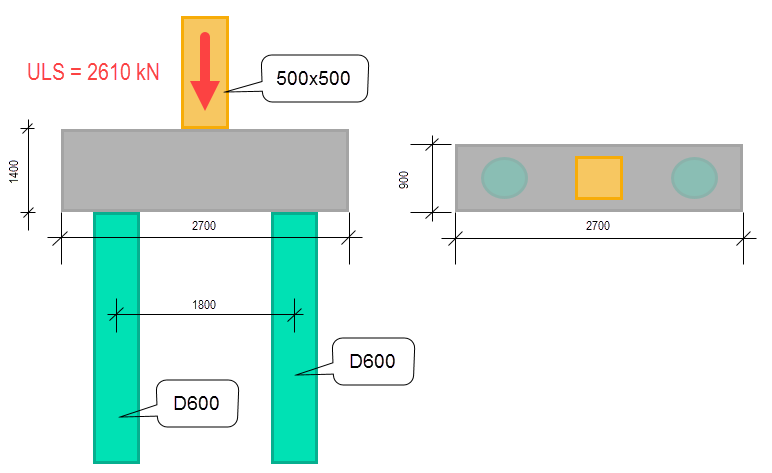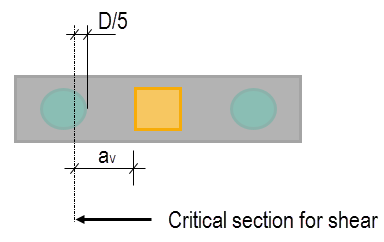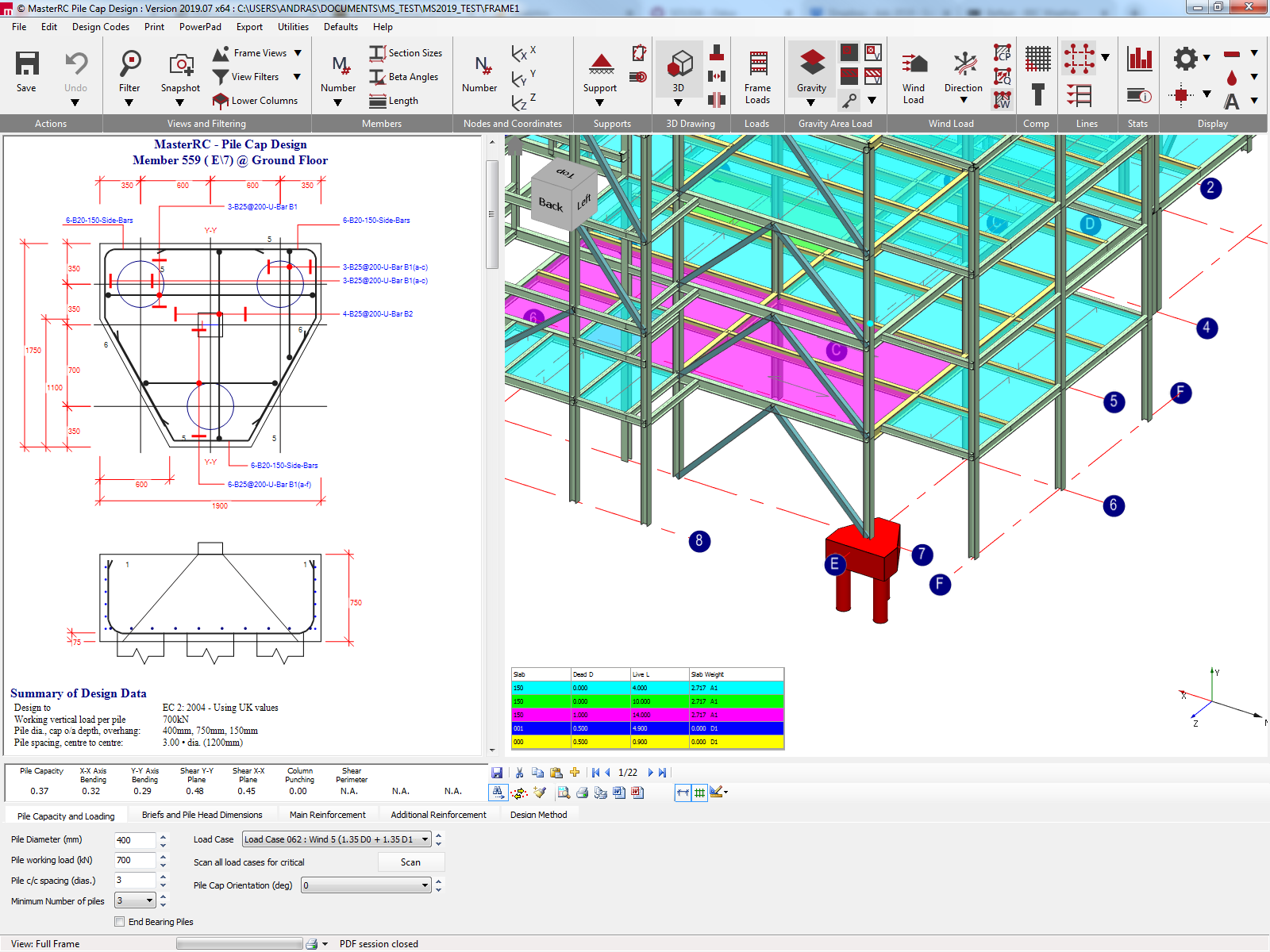MasterSeries Blog
Pile cap design using Strut and Tie methodology
For pile cap design, two methods are commonly used: design using beam theory or design using strut and tie method. In the first case, the pile cap is handled as an inverted beam and designed like a beam for bending and shear. But how can we design the pile cap, if the beam theory is not applicable?
Using the beam theory makes our life easier because we can use the usual conditions and design practice for pile cap design as we are using for a simple concrete beam.
But what can we do, if the circumstances require a higher pile cap and thus the span-to-depth ratio is less than 2 which is the limit of the beam theory.
In these cases, the Eurocode 2 permits us to use the strut and tie method for design.
In the strut and tie method, the truss components are the followings:
- Struts (S): concrete
- Ties (T): reinforcement
- Nodes: intersections of struts and ties

Design example
The column is 500 mm x 500 mm and carries a ULS load of 2610 kN.
Pile cap has the following data:
- Concrete: C25/30
- Reinforcement: 500B
- Concrete cover: 75 mm
- The diameter of the piles: 600 mm

Truss analogy method
Tension in the tie:

Required reinforcement area:

Applied longitudinal reinforcement:

Minimum reinforcement ratio:

Design of shear
The critical cross-section for shear design is 20% of the pile diameter inside the face of the pile.

For shear design, the shear force to consider a shear enhancement:

Shear utilization:

where design shear resistance without shear reinforcement:

Punching shear
Punching shear is calculated around the column perimeter:

Calculating pile caps as an integrated part of a structural model
Pile cap analysis, design and detailing up to 9 piles can be done as an integrated part of a complete building design project in MasterSeries.

Explore how MasterSeries Pile Cap Design can help you design more economical solutions and boost your productivity.
Try it for yourself with a free 14-day trial.
Categories
- About
- Beam Designer
- BIM
- Composite design
- Concrete Design
- Connections
- Dynamic
- Educational
- General
- LCA
- Masonry
- MasterFrame
- Pile Cap
- Portals
- PowerPad
- Retaining wall
- Steel Design
- Webinar
- Wind Analysis
